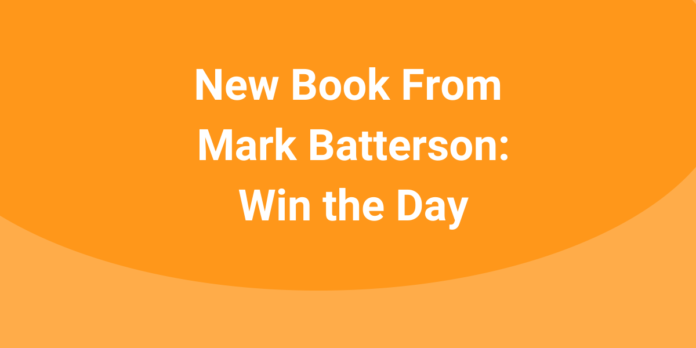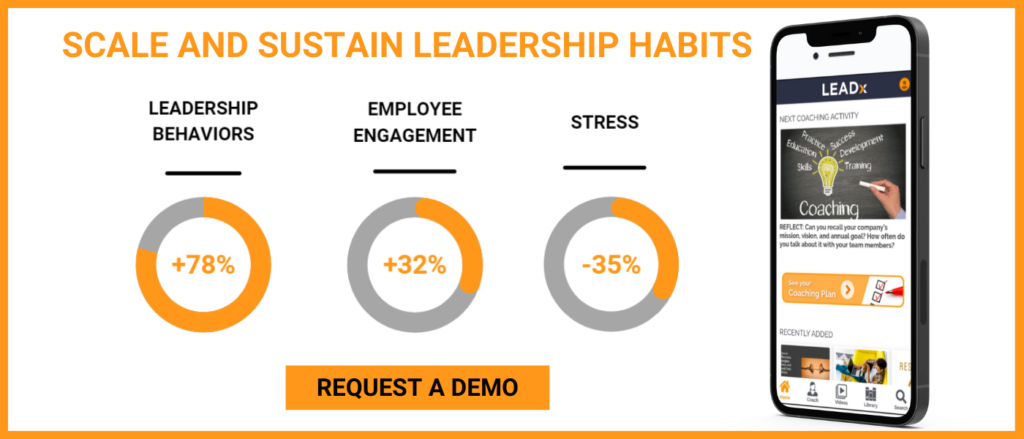
I’ve long been fascinated by time and productivity. In fact, I once spent an entire year interviewing billionaires, Olympic athletes, straight-A students, and over 200 Silicon Valley entrepreneurs while writing a book that revealed their secrets to getting more done, with less stress.
And that is a consistent theme running throughout New York Times bestselling author Mark Batterson’s new book, Win The Day: 7 Daily Habits to Help You Stress Less and Accomplish More. Batterson is the founder and lead pastor of the National Community Church in Washington D.C., which has been recognized as one of the most innovative churches in America.
“I think people overestimate what you can do in a year or two, but underestimate what you can accomplish in 10 or 20 years just by putting your head down and doing the right thing day in and day out,” said Batterson. “That’s really the heartbeat of Win the Day.”
I recently had the opportunity to chat with Batterson about running a miracle marathon, his approach to achieving goals and the habits that have fueled his prolific writing career.
This interview has been lightly edited for length and clarity.
Kruse: Like in all of your books, you tell a lot of stories in Win the Day, especially about miracles or gigantic goals that have been achieved in some way. One that stuck out was how you went from being severely asthmatic to running the Chicago Marathon, and I quote, “without getting breathless.” How did you pull that off?
Batterson: I had severe asthma for 40 years. I probably spent a total of 90-120 days in hospitals growing up because of asthma attacks. Not a week would go by where I didn’t take multiple puffs of a rescue inhaler. I recognize that people have different worldviews, but I would call what happened to me a miracle because it followed a brave prayer. Doctors would call it a spontaneous remission. The last time I touched an inhaler was July 2, 2016. To celebrate, I decided to do something I’d never done before and signed up for the Chicago Marathon. But I didn't just go out and run 26.2 miles. I followed a training plan consisting of 475 miles across 72 training runs. Then, and only then, was I able to pull off the marathon. It's one of the examples in the book that hopefully encourages people because it doesn’t matter what goal you're going after or what habit you're trying to break or build—it's going to happen little by little. You win the day one day at a time.
Kruse: Something you talk about in the book is the distinction between minutes and moments. What would you say is the difference?
Batterson: Time is measured in minutes; life is measured in moments. Too often, we live in the wrong time zone. We get stuck in the past, or we fixate on the future. Those mindsets hold us back from living in the only moment that's available to us: the present. I try to approach life with an understanding that every day is the first and last day of my life. The present moment has never been before and it never will be again. That might sound like a Jedi mind trick, but it's a philosophy of life that allows me to approach every day for what it is. And living my life that way takes a measure of discipline, creativity and effort. But in the long run, it pays off.
Kruse: I’ve found that sometimes people get “tunnel vision” when it comes to goal-setting and will neglect other aspects of life in favor of achieving their goal. I’ve personally seen the benefits of having big goals in business but achieving them came at the expense of my family and my health.
Batterson: My goals went through a radical transformation in my late 30s, because almost all of them were a bit selfish. They were all about me, myself and I. And so I started adding a relational component to my goals. So rather than setting a goal of going to the top of the Eiffel Tower, why not make the goal to kiss my wife on top of the Eiffel Tower? If I want to run a triathlon or swim the escape from Alcatraz, why don't I do that with my son or daughter?
But I would say you won’t accomplish 100 percent of the goals that you don't set. That said, 75 percent of New Year's resolutions will fail within the first month. So maybe we need to approach goals differently. I think the key is making a game plan to figure out the small pre-decisions we need to make or daily rituals we need to start to help us get there over time. For instance, in the Jewish tradition, the day doesn't begin at sunrise, it begins with sundown the night before. If your goal is to start waking up earlier, maybe you need an evening ritual to get you ready for the next day.
Kruse: You're quite prolific with your writing, and your books have gone on to be very successful. What habits have informed your writing process?
Batterson: I didn't write a book until I was 35. I wanted to write a book when I was 22, but I'm grateful that I didn't, because I would’ve needed to write a book at 23 to retract what I said at 22. But I’ve found that I have to give myself a deadline. Parkinson's Law says if you have two weeks to do something, it'll take two weeks. If you have two months, it'll take two months. So now I have what I call “writing season.” My birthday in early November is the starting line, and Super Bowl Sunday in February is the finish line. During that time, I don't take outside meetings beyond our staff and I do a lot less speaking. I’ll typically do a writing retreat on the front end and on the back end, and the days in between I’ll sometimes write from 6 a.m. to 6 p.m. And when everything is said and done, I usually come out of “writing season” with a decent manuscript to give to an editor to work their magic. After all, good writing is bad writing well-edited.
Kruse: Earlier I mentioned that your books contain so many great stories. How do you keep track of all of them?
Batterson: I read anything and everything I can get my hands on. I read 3,000 books before I wrote one because I love reading. I'm old school, so I read physical books from trees, and I never read without a pen in hand. I have a notetaking system of five levels that involves underlining, asterisks, circles and dog-eared pages. I can't remember all of the details from books that I’ve read, but I can almost always remember, 20 years later, where I read a certain story or heard about a certain study. So I don't have a good memory for details, but I do have a good memory for my own internal Dewey Decimal System.
Kruse: What is one thing you want your readers to take away from Win the Day?
Batterson: I want to inspire readers to ask themselves the question, “how do I live each day like it's the first day and last day of my life?” Because when you start to do that, those days are going to add up to some amazing weeks, months and years.







